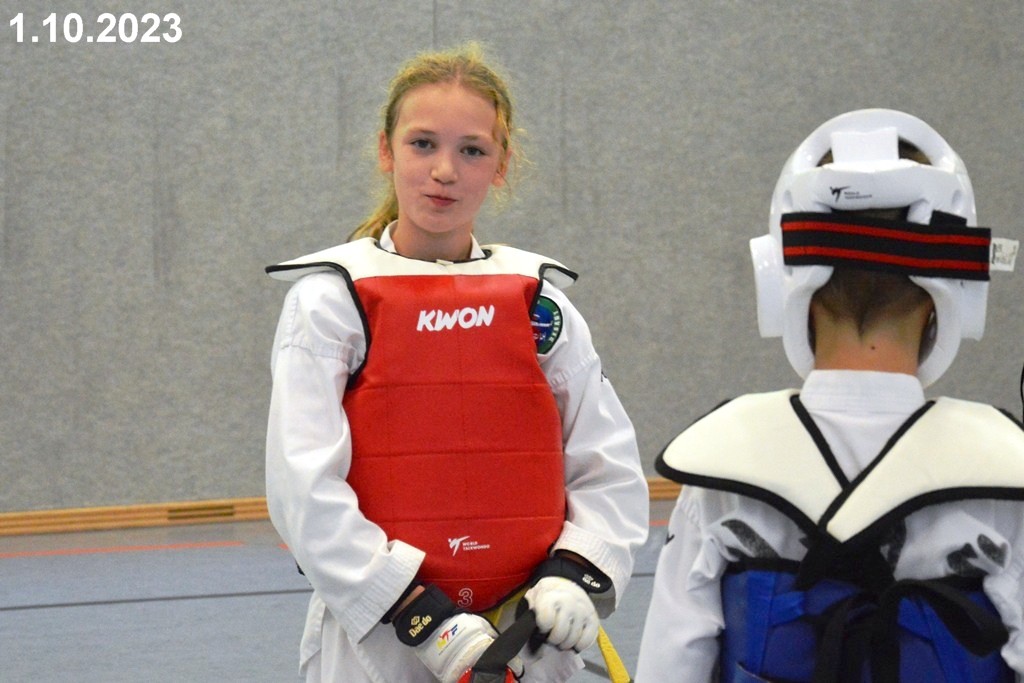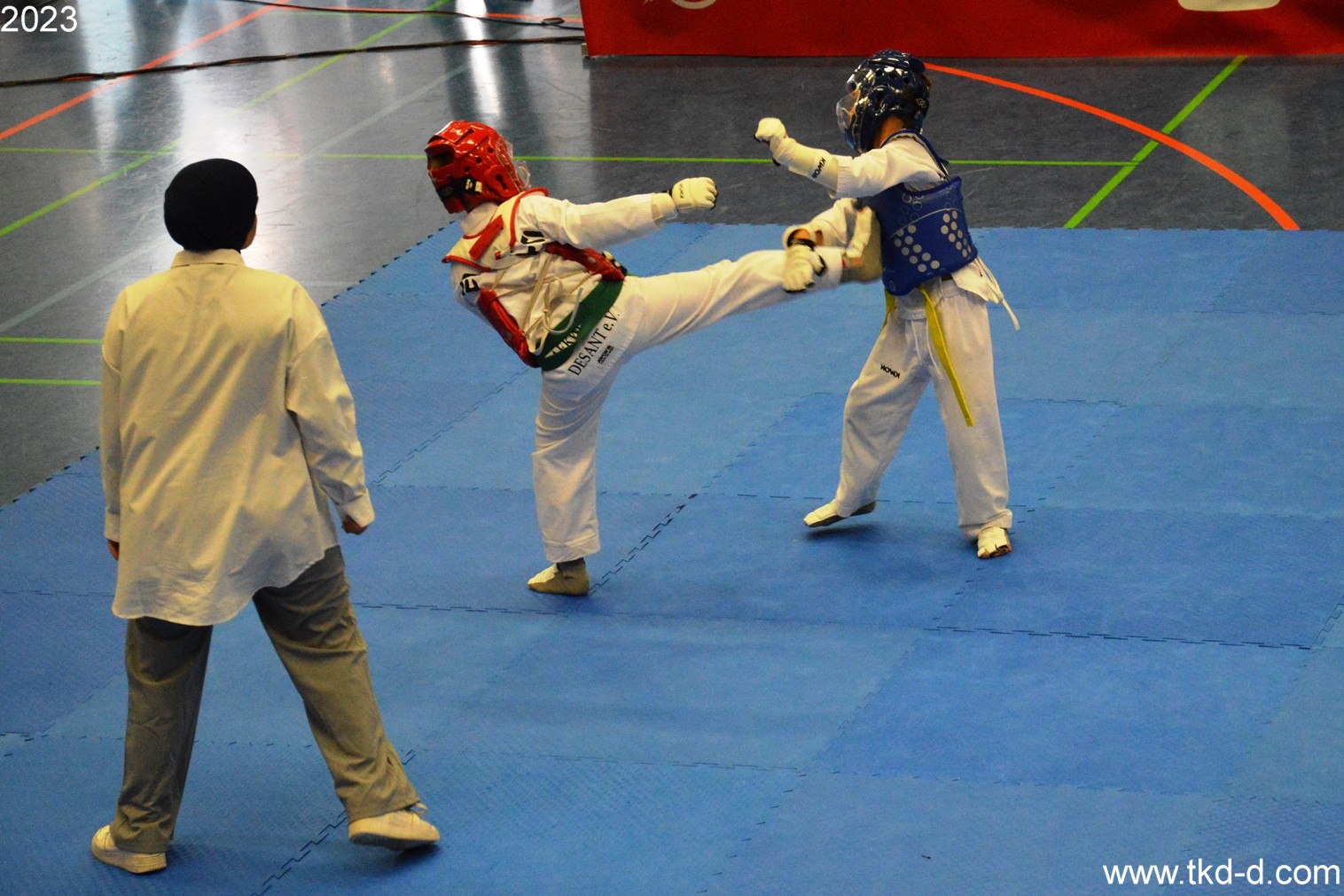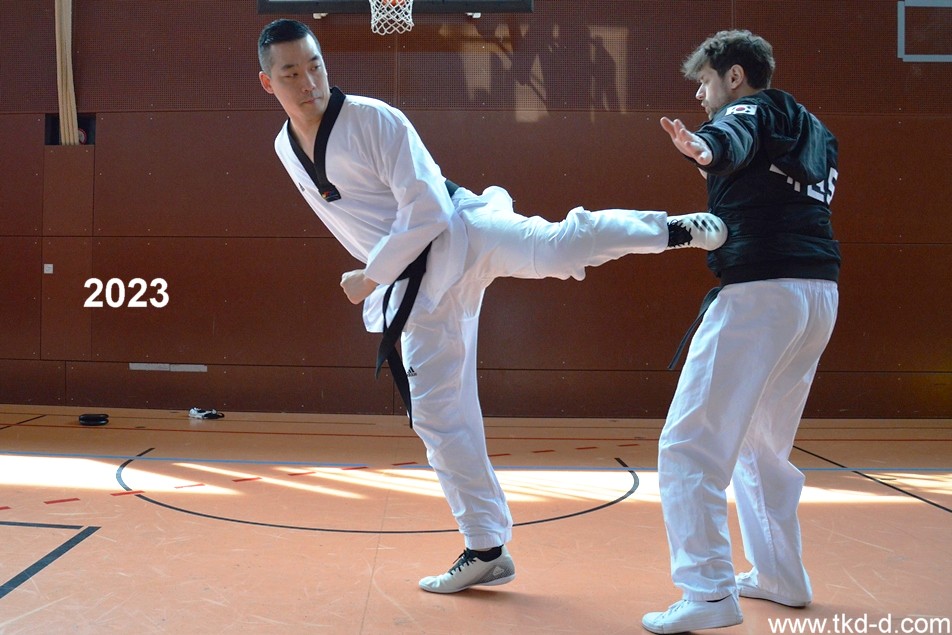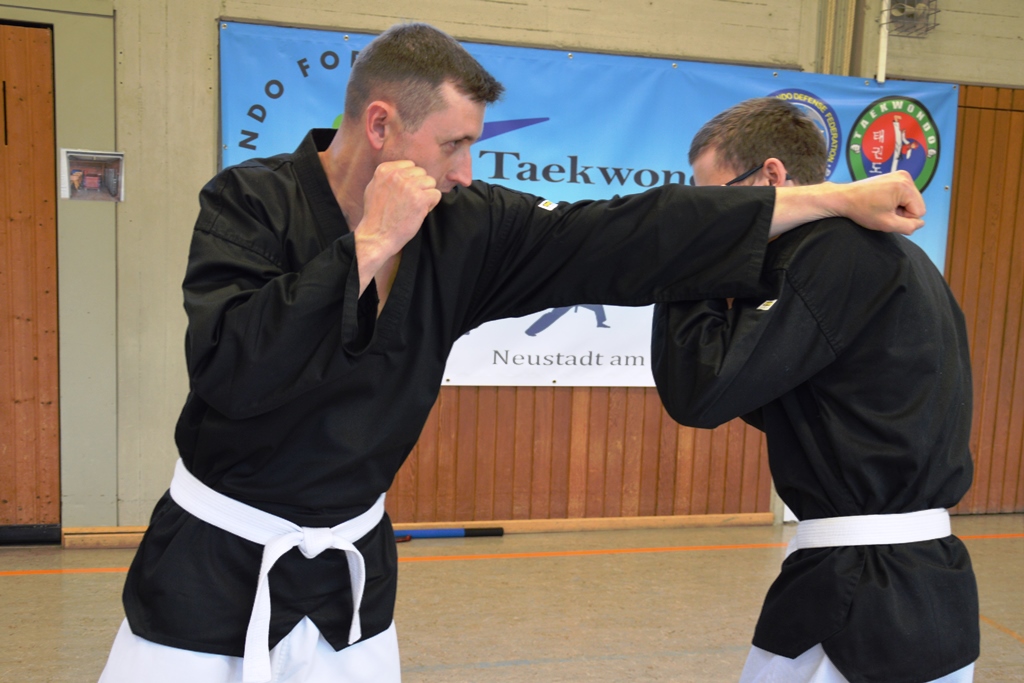The Kukkiwon, also known as the World Taekwondo Headquarters and home to the World Taekwondo Academy, is the official Taekwondo government organisation of South Korea. It is supervised by the Department of International Sports of the Ministry of Culture, Sports and Tourism. In May 1973, the Kukkiwon and the Korean Taekwondo Association organised the first Taekwondo World Championships with 200 competitors from 17 countries. The Kukkiwon sees itself as a worldwide centre for the training of taekwondo teachers. It is home to the World Taekwondo Academy and issues official Dan and Poom certificates.
The main objectives are:
To help people strengthen their intellectual and physical powers by spreading the cultural heritage of Taekwondo To present the philosophy and possibilities of Taekwondo in order to enhance the national prestige of Korea abroad.
Kukkiwon examiner licence.
The Kukkiwon has been issuing official examiner licences for taekwondo since 2015. Kup or student grades are a matter for the national association or the respective taekwondo club or school, but dan or master grades in taekwondo are administered centrally by the Kukkiwon. There are therefore internationally recognised requirements for obtaining a dan grade, which can be found on the Kukkiwon homepage (Kukkiwon).
Abroad, dan examinations can be conducted either by the respective member association of World Taekwondo (formerly: WTF) or by authorised examiners. To obtain a Kukkiwon examiner licence, you must attend a Kukkiwon examiner course. Again, a minimum grade of 4th Dan Taekwondo is required. Courses are organised by Kukkiwon at regular intervals. The language of instruction for the examiner course is English, with practical (Taekwondo technique) and theoretical lessons (history, philosophy, examination system). The course lasts 24 hours spread over 3 days of eight hours each.
Those who pass the practical and theoretical examination at the end of the course receive a Kukkiwon examiner licence in their respective class. There are three classes: 3rd class, 2nd class and 1st class. Examiners in the third class have at least the 4th Dan and are authorised to conduct Dan examinations up to the 3rd Dan. Examiners in the second class have at least 6th dan and can examine up to 5th dan, and only examiners in the first class can examine up to and including 7th dan and have at least 8th dan themselves. For the eighth and ninth dan, the examination must be taken at the Kukkiwon in Seoul in front of a commission.
Kukkiwon Dan certificates are proof of the quality and technical ability of the holder and are a certificate that must be obtained during standardised examinations.
Source: http://tkd.desantura.de/theorie/wtf.html
Kukkiwon trainer licence.
A Kukkiwon master course for non-Koreans lasts about a week and the education and training programme is intensive. Practical training sessions and theoretical lessons are usually held from six in the morning until the evening. The programme covers all areas of Taekwondo and many areas of sports science, training theory, philosophy and the requirements for running a Taekwondo school. At the end of the course there is a practical and theoretical examination. Those who pass are awarded the corresponding class of licence.
Kukkiwon trainer licences are issued in three classes: 3rd class, 2nd class and 1st class. The first class is the highest licence, the difference lies in the number of completed trainer courses and the graduation of the trainer. The Kukkiwon trainer licence is a seal of quality for the level of training of the respective trainer and proves that Taekwondo is taught and passed on in accordance with the current Kukkiwon guidelines.
Kukkiwon Dan examinations.
The Kukkiwon awards and administers all dan examinations worldwide. All dan holders are registered in the Kukkiwon database and can be viewed publicly. This prevents falsification and the dissemination of illegal gradings.Dan examinations from 1st to 7th Dan can be taken either on the regular examination dates at the Kukkiwon or with a registered Kukkiwon examiner. Anyone holding 4th dan or higher can officially take dan examinations up to one grade below their own and apply for certificates from the Kukkiwon. For the 8th or 9th Dan, however, you must take the examination directly at the Kukkiwon in front of an examination board. Young people up to the age of 15 do not receive a Dan (master) grade but a Poom grade (red/black belt). On reaching the age of 16, the Poom grade is then converted into a Dan grade.
There are a total of ten dan grades, the belt colour is black for all of them. The point at which the term "grandmaster" is used varies. In Austria, one is usually addressed as "Grandmaster" from the 6th Dan onwards. In Korea only from the 8th dan. You can only reach the 9th dan through examinations. The 10th dan is only awarded posthumously for special merits. One of the last grandmasters to receive this honour was Grandmaster Lee Chong Woo, who passed away on 8th of August 2015.
For Dan examinations up to 5th Dan in Kukkiwon, the areas of Poomsae (forms), Kyorugi (free combat) and Kyokpa (breaking test) are tested. From 6th dan onwards, free fighting* and breaking test are omitted, but a written paper (minimum 10 pages in Korean or English) on a specific topic must be written. Candidates for the 8th and 9th Dan also have an interview with the Kukkiwon president and must submit a Taekwondo-specific CV. The recommendation of a grandmaster with the 9th dan is also required for registration. The examination for higher Dan grades in Kukkiwon is organised as follows: first a four-hour technique training session where all poomsae are also practised. After the lunch break, there is a poomsae examination in front of the examination board and an interview with the Kukkiwon president. The result of the examination is only announced after a waiting period of several weeks. It is by no means the case that you automatically pass. Korean grandmasters have also failed the 9th dan examination.
In certain circumstances, the waiting period for the next higher grade can be shortened:
- Gold medal at the Olympic Games: 100%
- Gold medal at Taekwondo championships at world level (e.g. World Championships): 80%
- Gold medal at taekwondo championships at continental level (e.g. European Championships): 60%
- If a medal of honour is awarded for special services to the spread of taekwondo by the respective national president: 50%
For examinations for 6th and 7th Dan abroad, i.e. which were not held at the Kukkiwon, all three forms mentioned above plus the compulsory form must be recorded on video with immediate effect. In addition, approx. one minute of free fighting with competition equipment must be recorded on video - all videos must be sent to the Kukkiwon on a USB stick. Further details can be found on the homepage of the KMS (Kukkiwon Membership System).
The entire Kukkiwon examination programme can be viewed here (in English): kukkiwon.or.kr/english












